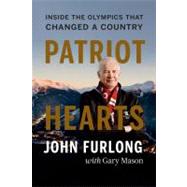
What is included with this book?
| Introduction: The Golden Goal | p. 1 |
| ôWelcome to Canada-Make Us Betterö | p. 9 |
| Enter Jack Poole | p. 30 |
| Flight 2010 to Vancouver | p. 56 |
| Employee No.I | p. 78 |
| Calls for My Head | p. 103 |
| Diving for Pennies | p. 123 |
| The Power of the Flame | p. 151 |
| Little Big Man | p. 176 |
| Tragedy in Whistler | p. 200 |
| Cypress-Our Special Child | p. 220 |
| The Sun Finally Shines | p. 241 |
| Owning the Podium | p. 264 |
| The Closing Curtain | p. 284 |
| A Final Farewell to Nodar | p. 300 |
| Epilogue | p. 321 |
| Acknowledgements | p. 327 |
| Index | p. 333 |
| Table of Contents provided by Ingram. All Rights Reserved. |
The New copy of this book will include any supplemental materials advertised. Please check the title of the book to determine if it should include any access cards, study guides, lab manuals, CDs, etc.
The Used, Rental and eBook copies of this book are not guaranteed to include any supplemental materials. Typically, only the book itself is included. This is true even if the title states it includes any access cards, study guides, lab manuals, CDs, etc.